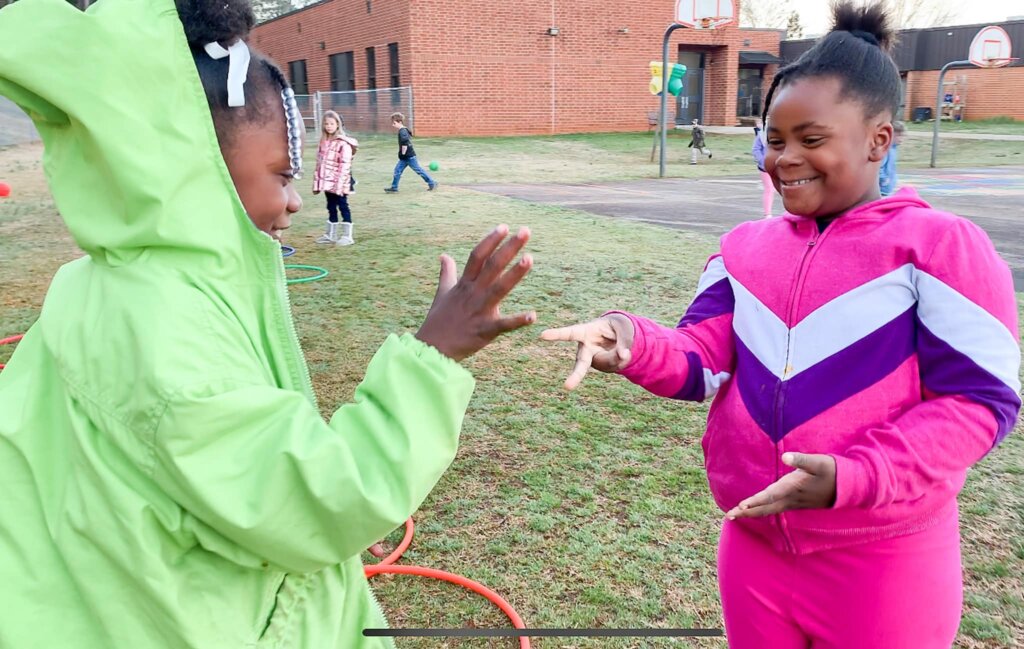






The Cure for America’s “Drastically Less Happy” Kids
Americans have become “drastically less happy in recent years,” the New York Times reported Wednesday — “particularly those under 30.”
Graphs from the latest World Happiness Report show American kids’ happiness drifting down like a deflated balloon. The Surgeon General, already alarmed about the epidemic of loneliness, called for new efforts “to improve real-life social connections for young people.”
In my book, that translates to…
Play.
Really, it is that simple and obvious – yet almost always overlooked. The latest data I saw said that kids play outside on their own less than 10 minutes a day.
Drastically less play time and drastically less happy kids. Hmmm.
And yet, when kids are playing, they are keenly engaged in “real life social connections.” And generally, their mood improves.
I don’t think I need to prove this point. But I was curious to hear other people’s thoughts about this utterly undervalued activity. Old-fashioned, unsupervised play is losing out to adult-run activities, maybe because it doesn’t cost money so it must not be valuable, or parents fear predators. And it’s losing out to tech, because somehow playing is considered more dangerous than sitting at home, with a phone for a friend.
So I asked, all over social media:
What did you get from just playing?
Some responses:
“Creativity without anxiety.”
“A strong sense of curiosity.”
“About 100 stitches.”
“How to keep secrets. How to make a game fair.”
“Leadership.”
“Just organizing a game of something: Spread the word. Who’s coming? Where are we playing? Who’s bringing what? A life lesson in problem solving,”
It is hard to be drastically less happy when getting so much:
“Long summer evenings and the smell of mowed grass.”
“Fun without adults controlling the activity.”
“Playing with kids of different ages.”
“The ability to resolve disputes among ourselves. We knew we wanted to play together in the future, so we made sure to have amicable settlements.”
“The endless invention of imaginary circumstances.”
“Confidence. Joy.”
“Exhilaration.”
A world beyond reality.
“My sister and I were very influenced by the Narnia books and hoped to find a portal to a magic land. I remember a sense of wonder and possibility.”
“Forts. Everywhere.”
“Borderline MacGyver-like abilities.”
“With my sister we’d pretend to be fish eating cornflakes sprinkled on the bed.”
What did you specifically get from playing OUTSIDE, without supervision?
“I learned how to walk silently so people wouldn’t know I was sneaking up on them, even in deep leaves.”
“We explored every inch of our land. My dad would ring the bell for us to come to dinner.”
“I became more attached to nature.”
“When I was 7, I made ‘squirrel soup’ in the woods with my 5-year-old brother. We crushed acorns and put them in a metal bowl, added water, stirred and left it for them overnight. The next day we came back to discover the bowl where we had left it. The soup was gone. We were chefs!”
“Spontaneity. Freedom. Laughter and seriousness and everything in between.”
“Be home by dark.”
“I learned how to, gracefully, fall out of a tree.”
The biggest gift of free, unsupervised play?
“Great friendships that last to this day.”
So maybe instead of wringing our hands, writing prescriptions, or hiring more therapists, we could keep the schools open, before and after school, for no-phones, old-fashioned free play. Let Grow, has a free guide on how to get a “Let Grow Play Club” started – and get parent buy-in, too. Or parents could try to keep Fridays free for neighborhood play. Or offer to sit outside one afternoon a week to provide a pair of eyes on the street.
In short: We don’t have to raise drastically less happy kids. What kids get from play is almost everything they need to not feel lonely, bored, helpless, and unhappy.




Mark, you ask an excellent question concerning location. It brings home the fact that different localities may have entirely different experiences. I’m in the Midwest, and the parents I’m speaking of are working/middle class parents. Glad you asked that question!
Mark, you ask an excellent question concerning location. It brings home the fact that different localities may have entirely different experiences. I’m in the Midwest, and the parents I’m speaking of are working/middle class parents. Glad you asked that question!
While I don’t disagree about how things ‘should’ be, Cary, things are different now such that people are not accustomed to how things used to be, but how they are now. Kids unsupervised is not common and combing this with drivers who are often on devices makes it trickier than it used to be. This is baby steps back up “Should Be” mountain we have tumbled down. I think people agree but its not a fun place to go first. Lots of people can get on board with the concept, remembering maybe even how it was for them (before cell phones, screen time, video gaming, travelling sports/activities etc) but putting it into practice requires an experience of risk or sacrifice that is not conceptual in nature. Thanks Cary and thanks Lenore and Let’s Grow!!
I’m wondering where Pamela. I don’t see that here in Manhattan. Hard to imagine in the small NJ town where I grew up. There, policing of older kids had mostly to do with protecting people, property from marauding kids. I sure read lots about what you describe, esp. here. I see much less of parents pursuing their own lives, interests, passions. If what kids see is mostly parents working, or sitting around themselves, buried in texting, etc. . . . ?
From the relatively little I’ve seen 1st hand in the past 25 years; listlessness, depression in kids played no small role in them taking little initiative to go out to play, help with chores. A vicious circle, so to speak. Seeing this in overworked parents fixating on the kids, w/ poor boundaries, didn’t help. My parents and other active adults largely inspired me. Including when they enjoyed my company, playing with me. I learned to pick up when my Mom, some others, were menstruating. To dial back my demands, rambunctiousness, dependence. One thing that ran in my extended family as a kid, that I long took much for granted, was that we all enjoyed teasing one another. This could get nasty. But mostly a huge, playful bonding experience.
In speaking to late 20s/early 30s parents about this whole idea of free play, a comment I’ve heard often is the fear of the police being called. It may have to be baby steps (like after school play) back to the wonderfully free childhoods we had when I was growing up in the 70s and 80s.
Depends what age we are talking and he is not saying that an adult needs to supervise just a pair of eyes in case there would be an emergency or suspicious person hanging around the kids. I think that’s what they mean by that.
You were doing great until “keep Fridays free” and parents “sit outside” to “keep eyes on the street”. That’s not truly “free-range”. All time that’s not homework or chores time should be “be home before dark” time, with zero adult planning, surveillance, or involvement in any way. That’s the only way we’ll ever get back to smarter, more mature, more socialized, more independent, more confident, physically stronger and more coordinated children, like there used to be.